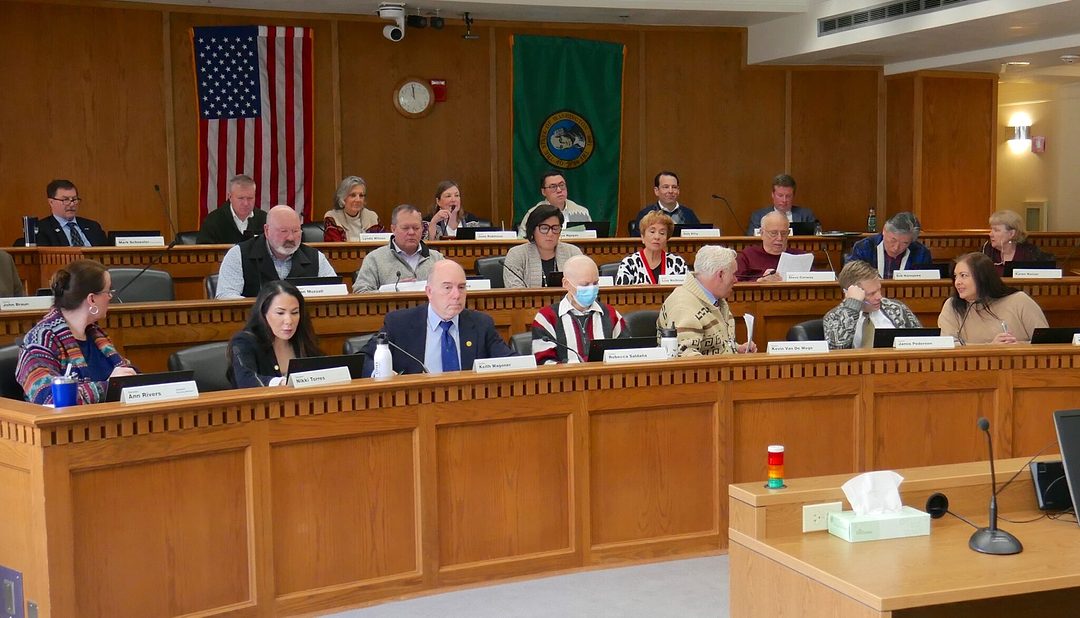
Home » Plan for 7% statewide cap on rent increases fails in Washington Legislature
Plan for 7% statewide cap on rent increases fails in Washington Legislature

Members of the Senate Ways and Means Committee sit during a meeting on Feb. 26, 2024, where the panel indicated it would not move ahead with legislation to cap residential rent increases at 7%. The move effectively killed the bill for the 2024 legislative session. (Bill Lucia/Washington State Standard)
February 26, 2024
A push by some Democrats in the Legislature to cap annual rent increases across Washington hit a dead end on Feb. 24.
The Senate Ways and Means Committee refused to vote on a policy that would have prohibited landlords from raising a residential tenant’s rent more than 7% a year, effectively killing the legislation. The bill also would’ve limited late rent fees.
Ways and Means chair June Robinson, D-Everett, told reporters the bill did not have enough support among committee members to move it forward, though she would not comment on any particular sticking points or which lawmakers would not vote for it.
The proposal has been on a winding road this legislative session. A previous version failed to make it out of the Senate Housing Committee. It passed in the House earlier this month with four Democrats joining Republicans in voting “no.”
It has drawn criticism from Republicans and moderate Democrats who say it could have unintended consequences on the housing market, possibly discouraging the construction of needed new housing and squeezing some landlords who are struggling to make ends meet.
Supporters, however, say the proposal is an essential part of alleviating homelessness and ensuring middle- and low-income renters aren’t driven from their homes by rent spikes.
Along with capping annual rent increases, the bill would restrict late fees to 1.5% of a tenant’s total monthly rent and would implement new requirements for when a landlord must notify tenants of rent or fee increases.
Landlords could set the rent at whatever they want when a new tenant takes over the lease.
If a landlord who was not exempt from the proposed rules raised the rent beyond 7%, a tenant could break their lease at any time. Landlords who violated the caps could end up paying damages to tenants equal to three months of the unlawful rent and fees charged, plus legal costs.
There are some exemptions in the bill, including for some buildings owned by nonprofit organizations and situations where an owner is also a resident of a property.
Residential construction that is 10 years old or less was also exempt.
This story is republished from the Washington State Standard, a nonprofit, nonpartisan news outlet that provides original reporting, analysis and commentary on Washington state government and politics.
Latest News Real Estate & Construction
KEYWORDS February 2024
Related Articles





